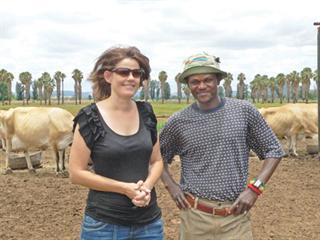Anyone who uses controls on predators – including hunters and landowners – should be accredited to a conservation authority, says Prof HO de Waal of the African Large Predator Research Unit (ALPRU) at the Department of Animal, Wildlife and Grassland Sciences at the University of the Free State. Prof HO De Waal believes there’s an urgent need for a coordinated approach to predator management in SA. Such accreditation – which should be based on practical experience as well as attendance of courses designed for the purpose – would form a valuable part of a code of practice for the management of individual predators that kill livestock.
“The sustained use of combined best practice of lethal and non-lethal components would help cut stock losses,” explains Prof De Waal. “Trying to reduce losses by killing predators on sight doesn’t offers a long-term solution. Instead, we need a balanced approach in which the natural-prey base is improved and neighbouring farmers work together. “At the same time, we need better knowledge of predator populations on farms, particularly regarding the dominant and territorial animals. We already know that the indiscriminate killing of predators can cause a vacuum, which draws more predators onto a farm. Farmers should also take seriously advice that predators play an important role, as they remove sick and old animals as well as carcasses from the veld.”
Prof De Waal suggests that control methods should be cost effective and in line with losses suffered; humane at all times and limit suffering; selective and aimed at specific damage caused by individual predators, not the species; and should be ecologically acceptable and have a minimal affect on the species and the environment. “Naturally, it would be best to use non-lethal methods such as guard animals, pens, predator-proof fencing and protective collars,” explained Prof De Waal, “When hunters are employed they need to be accredited and operate within the law.” He added landowners should keep comprehensive records of stock losses as well as of the sex, age, stomach contents and species of any predator killed. Such information could be used in a national initiative to coordinate and direct efforts to manage predators and reduce their impact on livestock. – Roelof Bezuidenhout Contact Prof De Waal on 083 645 8958 or e-mail [email protected].









